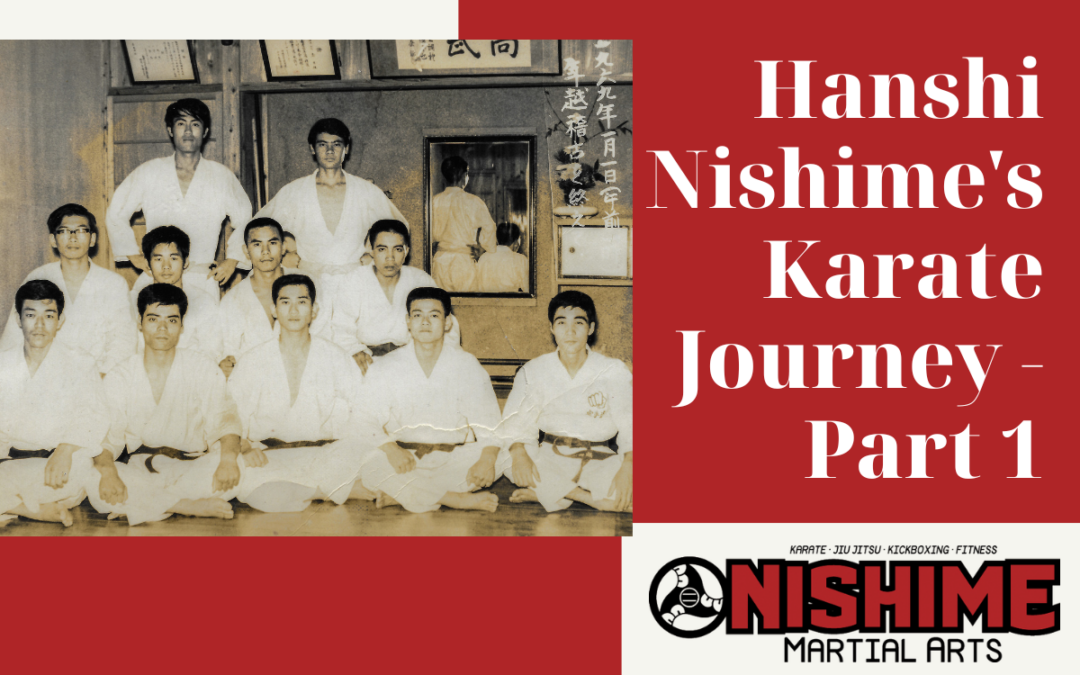At age 73, Hanshi Nishime has been training in Shorin-ryu Karate for nearly 60 years.
Hanshi began his martial arts journey at 14 when he moved to his sister’s home in Naha to attend high school. He didn’t know many people and spent most of his time hanging out with his best friend at his friend’s sister’s house. Her husband was a friend of Masao Shima, who owned a Matsubayashi Shorin-ryu dojo.
Hanshi says, “I guess her husband got tired of having a couple of hungry teenagers underfoot all the time, but he didn’t want us running around the streets, either. He introduced us to Shima Sensei and asked him to teach us.
“Shima Sensei made us try out for the dojo by having us do push-ups and sit-ups and then teaching us Neko Ashi Dachi (cat stance) and making us walk back and forth across the floor in that stance for about twenty minutes. After that, he gave us rags and had us clean the floor in a bear crawl. Once we finished, he told us we would be permitted to train at his dojo. We were pretty excited.”
The Shima dojo was a small school that usually had about eight to ten students enrolled at a time. During the week, classes were held from 6 until 8. On the weekends the dojo was available for open training.
“Usually, one of the senior students would lead the class for about forty-five to sixty minutes and Shima Sensei would watch and make corrections. Then we’d take a break and either wring out our gi and put it back on or change into a fresh one. The second part of class depended on what Sensei wanted to do. Sometimes we would keep working out together and other times we would break apart and work on kata or bunkai on our own. Sometimes we’d take out equipment like chishi and free weights and do strength training. We did a lot of body weight exercises, like chin-ups and push-ups.”
From the beginning, the training was physically challenging. “We did a lot of basic and foundation training. We would hold squats and cat stance for a long time to make our legs strong. Sometimes we would go to the beach to run or practice kicking in the water.
“We did Naihanchi a lot, especially when we first started. I’d say it was the most important kata because it taught us how to use our gamaku (abdominals). It also teaches how to engage glutes and lower back instead of relying on only leg muscles.”
Hanshi laughs when he remembers how sore he was in those early days. “There were three sets of steps from the sidewalk to the front gate and there were makiwara inside of that before you got to the training area. When we were beginners, by the time we left the dojo, those steps felt like thirty sets of steps.”
Those early days set the foundation for his life. He still teaches most days and trains every morning, practicing kata and lifting weights. He credits his karate training for his good health and ability to move like someone much younger.
